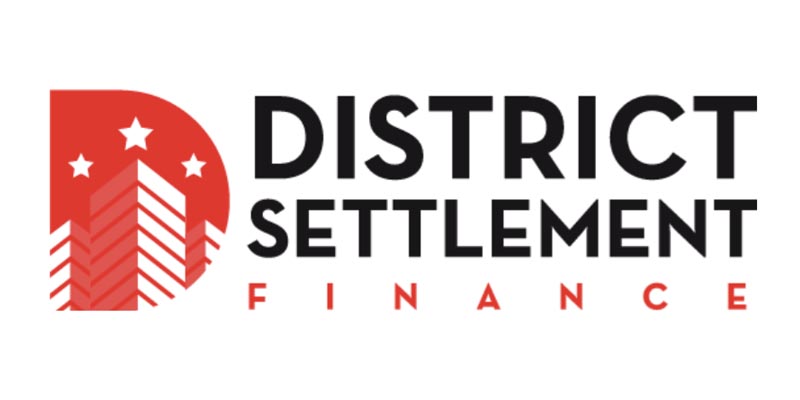Getting Court Approval to Sell Your Structured Settlement
Updated:
Retirement Living takes an unbiased approach to our reviews. We may earn money when you click a partner link. Learn More

Structured settlements serve as a vital financial lifeline for individuals who have received compensation for personal injuries, wrongful death, or other legal disputes. But you may consider selling your settlement to a structured settlement buyout company if you need faster access to a larger amount of money. Part of the process for selling structured settlements includes obtaining court approval.
Below, we’ll explore the structured settlement court approval process, the steps you need to take to get approval for the sale, and other key factors to consider.
Fast Funding Time

District Settlement Finance
- Higher payouts in a faster time
- Over 20 years of experience
Understanding Structured Settlements
Structured settlements are financial arrangements typically used to compensate individuals for damages resulting from legal claims. Unlike lump-sum payments, structured settlements provide a series of periodic payments over a predetermined period. These payments offer stability and financial security, ensuring long-term support for medical expenses, living costs, and other necessities.
Structured Settlement Court Approval Process Explained
Most jurisdictions require that court approval be obtained as part of the process for selling structured settlements. This requirement safeguards the interests of structured settlement recipients, particularly vulnerable individuals, such as minors or incapacitated adults.
Structured settlement sales are governed by state and federal laws, along with local court rules enacted to help ensure that any sale of structured settlements is fair, reasonable, and in the recipient’s best interests.
Navigating the court approval process can take several months. Before a petition is filed with the court for approval, you’ll sign a series of paperwork. Then, the court will schedule a hearing to review the sale. Your legal representative will be required to attend, but you may also attend this hearing as the petitioner.
Following the court hearing, the judge thoroughly reviews the petition, considering various factors, such as the recipient’s financial needs, the terms of the sale, and the impact on future payments. The judge then decides whether to approve or deny the proposed sale.
Key Requirements for Court Approval
You must meet certain requirements to secure court approval for a structured settlement sale. These structured settlement sale court requirements vary depending on the jurisdiction but generally include:
- Demonstrating a genuine need for the sale, such as covering medical expenses, debt repayment, or financial emergencies.
- Providing evidence of informed consent from the structured settlement recipient, ensuring they understand the implications of the sale.
- Complying with statutory requirements, such as waiting periods or mandatory disclosures.
- Obtaining independent professional advice, such as legal or financial counseling, to assess the consequences of the sale.
Steps to Obtain Court Approval for Structured Settlement Sales
While the steps to get court approval for a structured settlement sale will vary by jurisdiction and your personal situation, the process will go as follows:
- Initial legal consultation: Seek guidance from a qualified attorney specializing in structured settlement sales. They can assess your situation, explain the legal requirements, and advise on the best course of action.
- Document preparation: Gather all relevant documents for submission to the court, including the structured settlement agreement, annuity policy, financial statements, and proposed sale terms. You may also need personal identification documents and proof of residency. Ensure these documents are complete and accurate.
- Filing of the petition: Your attorney and the structured settlement company will prepare and file a petition with the appropriate court detailing the reasons for the structured settlement sale, the proposed terms, and any supporting evidence regarding the impact the sale will have on your financial well-being.
- Court appearance: Attend the scheduled court hearing to present your case before the judge. Be prepared to answer how you plan to spend the funds and whether you’ve exhausted all other options. They’ll also confirm that you’ve done your research and that you understand you’ll receive less money by selling now than you would if you kept to your initial payment schedule.
- Judicial decision: After reviewing the petition, you’ll await the judge’s decision on whether to approve or deny the structured settlement sale. If approved, the factoring company will finalize the transfer and send your funds via a direct deposit to your bank or a check. If denied, the judge has deemed the sale not in your best interest, and you’ll need to work with your attorney to explore alternative options or appeal the decision.
Challenges and Considerations
First and foremost, it’s important to have legal representation throughout the structured settlement buyout court process. Hire an attorney who will act in your best interest (not the factoring company’s) and guide you through the approval process. seek and receive independent professional advice regarding the proposed transfer and should consider doing so before agreeing to transfer any structured settlement payment rights.
Keep in mind that an attorney will also cost money, so it’s important to consider their fees when interviewing prospective representation.
A judge is more likely to approve the sale if you can prove you have a valid reason for selling and that you understand the terms of your sale. Arrive ready to answer questions about the transfer itself and your intent.
Bottom Line
Navigating the structured settlement court approval process requires careful planning. By understanding the steps involved, addressing key requirements, and seeking professional guidance, you have a better shot at getting your sale approved. To research reputable factoring companies and get a quote, read our guide on the best structured settlement companies.